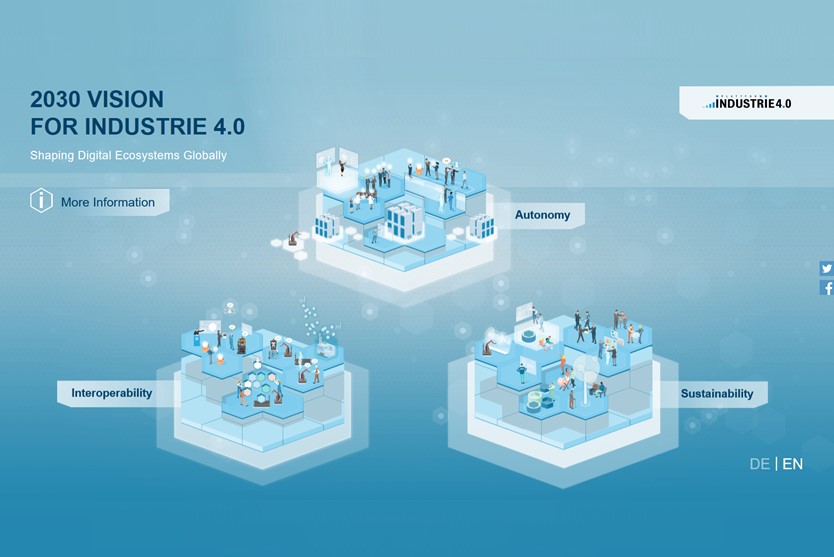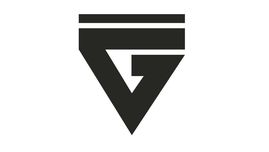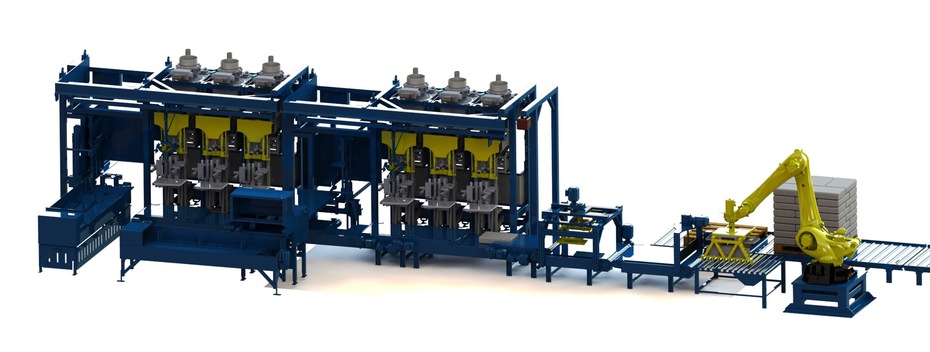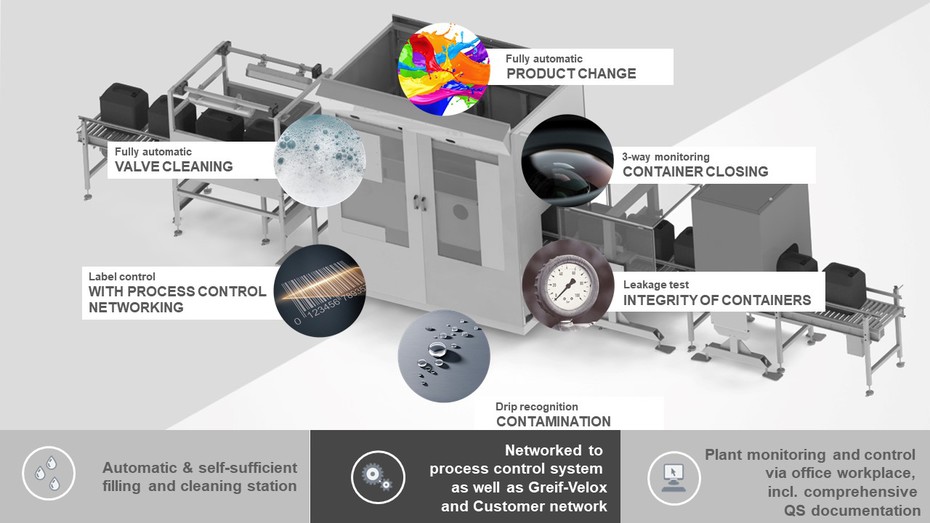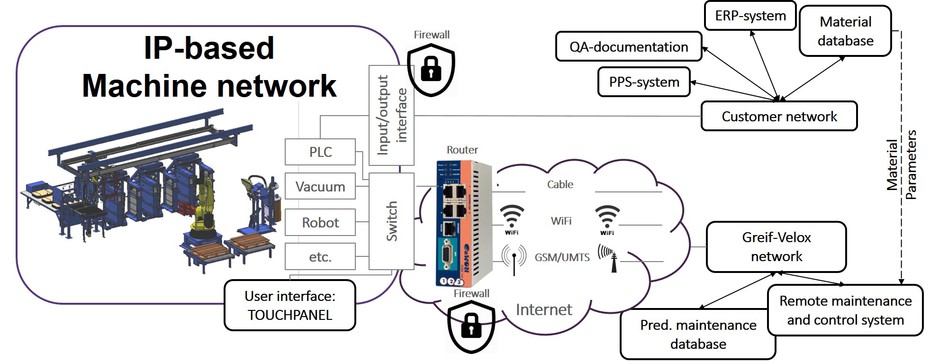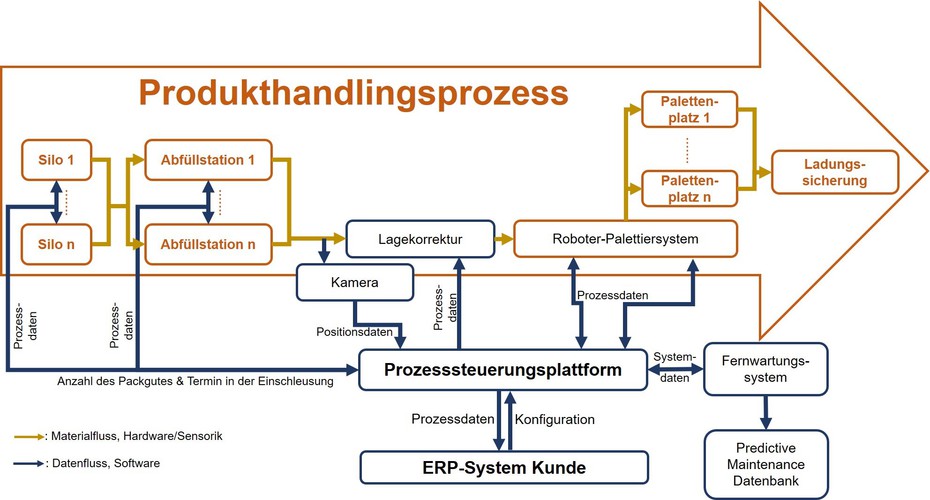What were the challenges to be solved and what specific benefits were achieved?
In the course of the order-related individualisation of products and product batches, as well as decreasing storage capacity on the one hand, and increasing degrees of automation on the other, there are new requirements for the entire production process and for packaging systems. However, new possibilities are emerging in packaging technology as a result of new developments in sensor technology and networking with surrounding systems. The digital networking of value creation processes in Smart Factories offers great potential benefits in digital operational excellence and in packaging in decentralised and highly automated production environments, thanks to increasing flexibility and performance in the plants. In concrete terms, we were able to implement transparent production processes and therefore identify and fix errors quicker. This helps us to be economically successful in a competitive market.
Through networking and complementary remote services, the benefits of comprehensive digitisation for producers in Digital Operational Excellence can be developed, for example through:
- Maximum performance through process optimisation using sensor values
- Mapping customer-specific processes with ERP and MES
- Process data for quality assurance
- Optimisation of plant availability via remote services
- Flexible usability through simple configuration, even with changing packaged goods
"A modern engineering company handles all operational and visionary elements that digitisation and IoT offer the market, and links them with continuous mechanical and procedural optimisations of the plants. Our solutions combine the best of both worlds through the implementation of strategic market-oriented and customer-oriented innovations. Due to consistent modularisation of software and mechanics, we are able to provide our customers individually tailored solutions in terms of the degree of automation, networking and system integration as well as self-organisation and decentralised provision of information in the product."
Ralf Drews, Chairman of the Board & CEO
How can the Industrie 4.0 approach be described?
The filling system, as a core component of a product handling system, as well as conveyors, robot palletizing systems, load securing and more, consist of cyber-physical systems completely monitored by sensors, which display the respective plant status in the customer network transparently. It independently optimises itself to altered environmental conditions and changes in process and provides data transmission from running processes incl. process and quality parameters as well as errors, fault identification, the load factor and so on. All communication takes place based on open standards such as IO-Link, OPC UA, Profinet, etc., thus ensuring consistent communication and the compatibility of modular subsystems.
What could be achieved?
The aim in optimizing the value creation processes in the production and integrated product handling processes of our systems is a continuous optimization of the operational excellence particularly in terms of flexibility, autonomy, efficiency, transparency and availability. These optimizations manifest, for instance, in the installation of a new product or if an error occurs in the process, such as a change in the dosing times or filling weights. The process engineer on site can automatically parameterize the filling system via orders from ERP systems. The processes are continuously streamlined based on networked sensors and adapted to constraints. On the other hand, using IoT via a secure VPN tunnel, experienced experts from Greif-Velox can quickly and flexibly support the process technicians on site from the company headquarters if necessary. By digitally mapping the entire system in full errors can be detected remotely and process parameters can be adjusted.
What measures have been taken to achieve the solution?
Greif-Velox uses various Industrie 4.0 approaches in production processes:
- The individual components of the plant communicate as a cyber-physical system and can be controlled via touch panel or mobile device.
- Data transmission from running processes, including process and quality parameters as well as errors, fault identification, workloads etc., is implemented modularly according to customer requirements.
- Integration into the customer network: the plant is fully monitored by sensors and the system status is displayed transparently. The sensor data is often used for quality control and documentation (e.g., torque monitoring in the case of the screw joint).
- Remote access via Remote Services -> also for process optimization, e.g., for setting parameters in a new medium.
- Sensor-based performance optimization - for optimum adaptation of the processes in volatile surrounding conditions.
What can others learn from it?
Greif-Velox recommends concentrating on and use of the benefits that digitization brings the world of work and continuous questioning of existing processes in conjunction with consequent customer focus. Thinking "outside the box" to absorb new ideas and discussions as well as helping to shape new ideas in local, national and international organizations and committees contributes significantly to success. A clever, flexible and uncomplicated implementation of ideas into prototypes as well as sample implementations in cooperation with customers is also helpful. Furthermore a close cooperation between all affected areas and a communication via internal media helps to always inform the staff about news throughout the entire process, thereby involving them in the process of digitization.


